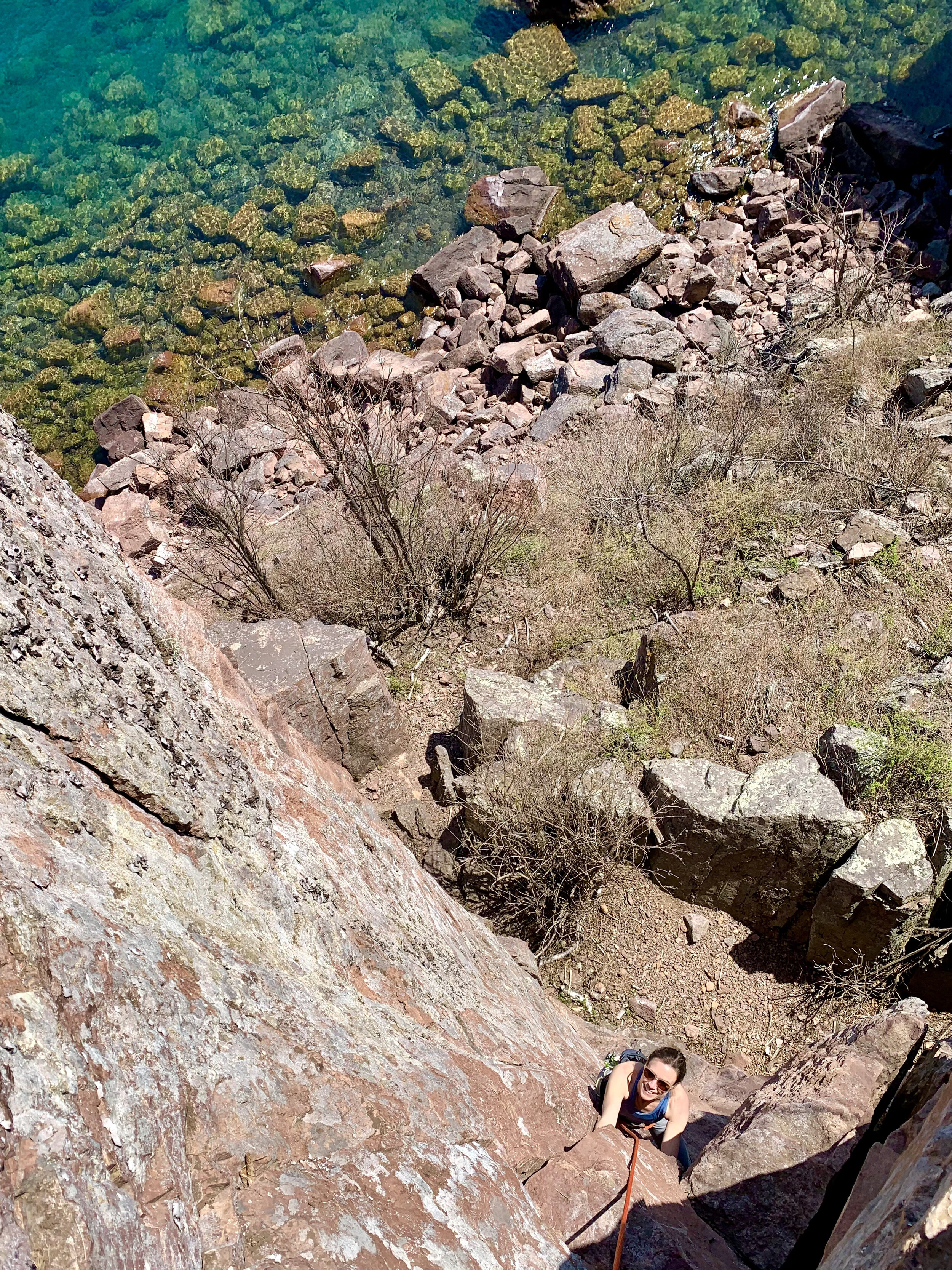I was meditating this morning with Sam Harris’s daily guided meditation on Waking Up. He asks of the open-eyed meditator with feet still planted in the ground-belief in a continuous, essential self, “Are you on the edge of this sphere” of appearances? When I looked for “me” I found a vanishing point where all seeing and seen converged.
And where am I among the constant shifting currents and clouds of feelings, emotions, and thoughts? Is this me, this weather system? Where is the center, where are the boundaries? Nowhere to be found: Where is the center of a formless flow? Where is the edge of a cloud?
Again the precocious psychology of William James comes to mind – including his famous statement that “Metaphysics means nothing but an unusually obstinate effort to think clearly” (145).
And so did the book I just finished editing, the English edition of Johanna Blomqvist’s Hyperreality, originally published in Finnish, which dropped onto my desk serendipitously, in that it entered the welter of questions and doubts already swirling in my mind about the nature of things. Its central question: “What is real?”
But I was thinking especially of some passages from James’s chapter on “The Stream of Thought,” in which he postulates the primacy of consciousness in what is real:
Out of what is in itself an undistinguishable, swarming continuum, devoid of distinction or emphasis, our senses make for us, by attending to this motion and ignoring that, a world full of contrasts, of sharp accents, of abrupt changes, of picturesque light and shade. …Attention… out of all the sensations yielded, picks out certain ones as worthy of its notice and suppresses all the rest. (284–5)
Consciousness and its sidekick Attention make our reality. They do this by selecting, but how do they select? James says they only notice sensations that are “signs to us of things.” “But what are things?” he boldly asks. They are:
Nothing, as we shall abundantly see, but special groups of sensible qualities, which happen practically or aesthetically to interest us, to which we therefore give substantive names, and which we exalt to this exclusive status of independence and dignity. (285)
Indeed, the word thing has deep roots not in the hard stuff of so-called objective reality, like rocks, but in abstract, human institutions. According to the Online Etymology Dictionary, the root of “thing” was for centuries mainly of this nature:
Old English þing “meeting, assembly, council, discussion,” later “entity, being, matter” (subject of deliberation in an assembly), also “act, deed, event, material object, body, being, creature,” from Proto-Germanic *thinga- “assembly” (source also of Old Frisian thing “assembly, council, suit, matter, thing,” Middle Dutch dinc “court-day, suit, plea, concern, affair, thing,” Dutch ding “thing,” Old High German ding “public assembly for judgment and business, lawsuit,” German Ding “affair, matter, thing,” Old Norse þing “public assembly”). The Germanic word is perhaps literally “appointed time,” from a PIE *tenk- (1), from root *ten- “stretch,” perhaps on notion of “stretch of time for a meeting or assembly.”
Just as in its historical development, then, thing for James is a metonym for “the world” as it is made by human consciousness.
One implication of this is the undermining of “objective reality”: “A man’s empirical thought depends on the things he has experienced, but what these shall be is to a large extent determined by his habits of attention” (286). James is sounding a lot like Sam Harris here, who often emphasizes that it’s what we do with our attention that determines our experience and the quality of our lives.
On a recent weekend trip to the North Shore in Minnesota, I attempted to put these insights into practice one morning as I sat watching sunlight reflect off the wavelets of Lake Superior, taking the “dissolving view” mode of consciousness that knows concepts are secondary and light is both waves and particles.
A thing is an idea of a thing, and thoughts are things, as ungraspable as light, or clouds.
This doesn’t mean the rock I climbed later was so unreal it didn’t scrape my elbow and chafe my fingertips. But that how we experience things is determined by the qualities we attend to and thereby imbue with objectivity, thingness, reality. Feel the wonder!



Quotes are from:
William James, The Principles of Psychology, vol. 1, New York: Dover, 1950 (reprint of Henry Holt, 1890 edn).